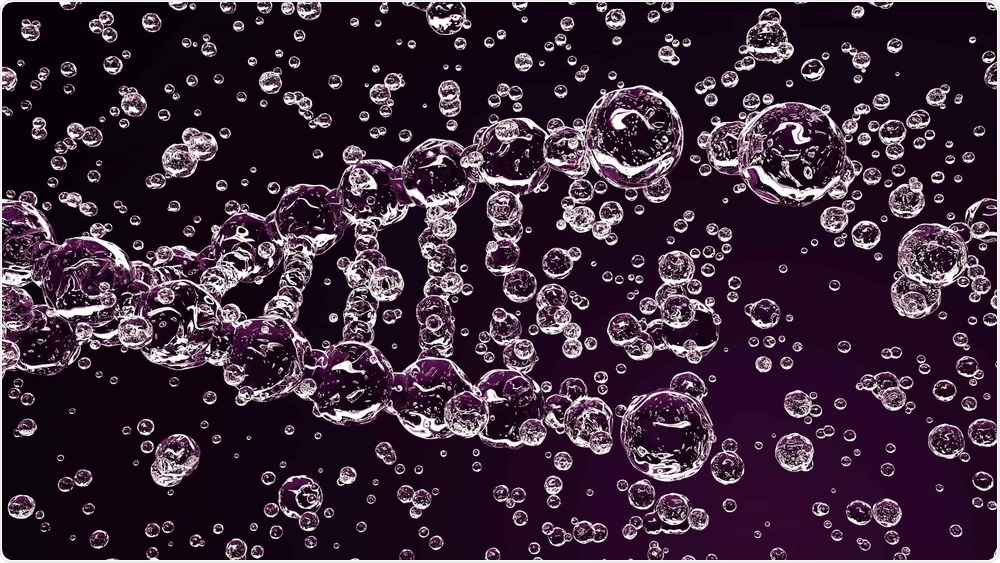
Failed DNA repair triggers chromosomal chaos in cancer cells
Researchers at the German Cancer Research Center (Deutsches Krebsforschungszentrum, DKFZ) have established the trigger for catastrophic events that occur within the chromosomes of cancer cells and lead to cancer cell death.
 Novikov Aleksey | Shutterstock
Novikov Aleksey | ShutterstockThey found that failure of DNA repair systems promotes fragmentation and disrupted assembly of chromosomes. However, the researchers say these DNA repair defects could potentially be treated with certain drugs.
Only a few years ago, scientists at the same research center reported that in a particularly aggressive form of childhood brain tumor, unprecedented chaos occurred in the cell nuclei.
Sections of chromosomes were broken at multiple points and incorrectly reassembled, while other sections were incorrectly copied or incorporated.
These events, which scientists refer to as “chromothripsis,” had not been seen before and differed from the genetic defects previously established genetic defects.
Chromothripsis occurs in around 20 to 30% of all cancers, but until now, it has been largely unknown what triggers this genetic disaster.
As reported in the journal Nature Communications, Aurélie Ernst and team identified the failure of certain genetic repair systems as one of the causes.
The team studied a mouse model where the tools used by neural precursor cells to repair broken DNA had been genetically switched off. As a result, the animals developed malignant brain tumors that exhibited a high frequency of chromothripsis.
In addition, the chromothripsis almost always occurred in conjunction with extra copies of the cancer-promoting Myc oncogene.
The team confirmed that the failed genome repair and resulting catastrophic chromosomal events also apply to melanoma, brain tumors and breast cancer in humans and that the Myc oncogene is again involved.
Ernst says that although the chromosome chaos caused by failed DNA repair seem frightening, there are ways to specifically target cancer cells with such defects:
Drugs called PARP inhibitors are already clinically approved agents that block a key DNA repair system and Ernst says that if the genetic material of a tumor exhibits chromothripsis, it may be possible to treat them with PARP inhibitors in the future, although this would require confirmation in preclinical and clinical tests.






















.png)












No hay comentarios:
Publicar un comentario